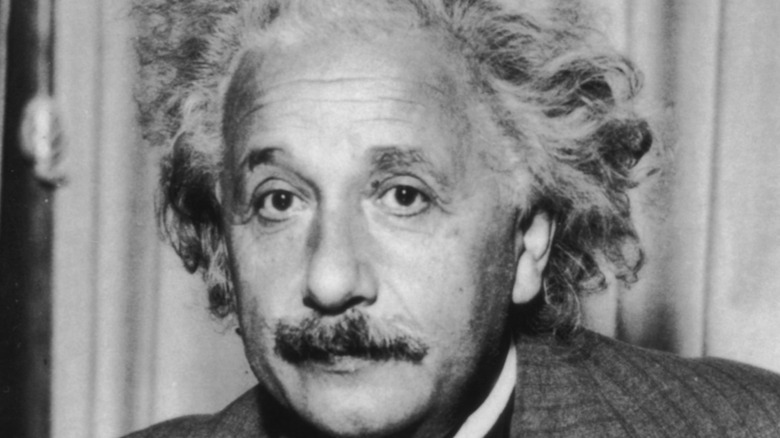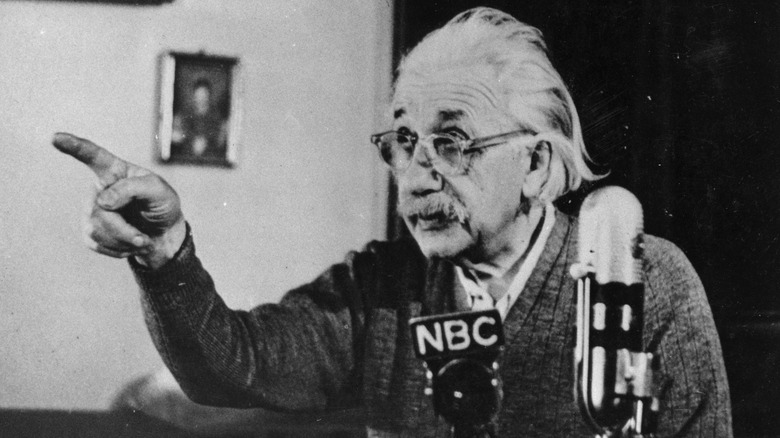The One Mistake Albert Einstein Wished He Never Made
Iconic physicist Albert Einstein is among the greatest minds in history. From his explanation of the reason the sky is blue — light from the sun is split by the atmosphere, he explained, per Science Struck — to his much-ballyhooed theory of relativity, he left a remarkable impression on the world. In one instance, for the wrong reasons.
As Business Insider reported, Einstein left Germany in fear of the Nazi Party just before World War II. From the United States, he, along with fellow brilliant physicist Leo Szilard, wrote a letter to President Franklin Delano Roosevelt. The U.S. Department of Energy: Office of History and Heritage Resources stated that this letter made it clear just how much danger humanity's contemporary scientific developments were putting the world in.
"In the course of the last four months, it has been made probable ... that it may become possible to set up a nuclear chain reaction in a large mass of uranium, by which vast amounts of power and large quantities of new radium-like elements would be generated," the letter states, per U.S. Department of Energy: Office of History and Heritage Resources. Business Insider noted that scientists in Germany had succeeded in splitting the atom and unleashing the energy therein (nuclear fusion), and this discovery could pave the way for weapons the likes of which humankind had never seen before. "Extremely powerful bombs of a new type may thus be constructed," the letter warned.
A devastating mistake by a genius
The threat Nazi Germany could pose to the world with such a formidable weapon led Albert Einstein to implore Roosevelt not to get left behind in regard to such research, and to provide funding and coordination to the country's own efforts. In no small way, this rallying cry led to the Manhattan Project, and ultimately, the atomic bombs that devastated Hiroshima and Nagasaki to bring WWII to a final close. The Nazis themselves would never create atom bombs at all.
As History reports, Einstein was not directly involved in the development of these deadly weapons, but like many who were, he was shocked and appalled by the use of atomic bombs. According to Haaretz, he would later tell chemist Linus Pauling, who visited his home shortly before Einstein's death in 1955, "I made one great mistake in my life — when I signed the letter to President Roosevelt recommending that atom bombs be made."

